Features of barefoot shoes
What are barefoot shoes? Often, people think that the term 'barefoot' means you can't wear socks with your shoes. The truth of the matter is socks are allowed! Bare feet have more to do with how comfortable and natural feeling they provide for runners who want an improved running experience without having any added weight or restriction on their stride length due out if it's too tight around certain areas like ankles etc. To help you find the perfect pair, we will explain what excellent barefoot shoes have in common.
Completely flat:
The many benefits of a flat shoe have been shown to help with balance and stability. Heeled shoes, even those that are only slightly higher than the average heel (such as tennis or running sneakers), push us forward while also causing our spine's different parts each having their own job in order not be imbalanced, this can result from being overworked here compared unfavorably opposed underworked elsewhere! Wearing zero-drop footwear helps align whole bodies properly without any need for compensation on account of the uncomfortable effects brought about by traditional heels.

Foot-shaped:
Our feet take the shape of our shoes. So if you spend most of your time in pointy or squished-out footwear, it's only natural that over time this will cause bunions and other toe diseases! Maintaining a good posture while wearing flattering styles is crucial for preventing any future problems with foot health. Maintaining an upright position aids circulation by stimulating blood flow away from areas at risk like toes (which can become quite swollen), and towards more important parts like hands and brain during physical activity.

Flexible:
The foot is a complex and intricate muscle that must be used regularly, or it will waste away. Stiff shoes effectively bound by tight-fitting bindings cause pain in the arch of your feet, as those muscles become weak from not being utilized often enough to stay supple and strong. If you wear shoes that don’t move with your foot, then it will be harder for the intricate muscles of the feet to stay strong and supple. This can lead to pain as we age because these particular muscle groups become smaller over time unless they are used regularly, which means a limited amount of range of motion in certain areas!

No arch support:
With all the problems that flat feet can cause, you might be tempted to just get rid of them once and for good. But wearing support under your foot is actually worse than doing nothing at all! It locks up positions in which they should flatten out instead and this will make long-term health issues even worse down the line if left unchecked. "Weaning off arch supports takes time, but eventually, these individuals are much better placed when it comes to their overall well-being," says Dr. David Boxley from Harvard Medical School.

Secure to the foot:
The more you worry about your feet not being able to stay in one spot, the less efficient they become. This has ripple effects throughout all parts of our bodies as we expend energy trying to keep them from flying off or slipping around inside their shoe, which only causes us to grip harder on each step so that nothing happens! In conclusion: When walking with loose-fitting footwear (i.e., Flip Flops), there's always a risk something might happen, it could cause toes to pinch/slam against heels, etc. But once again this becomes an issue if the wearer doesn’t take care while moving.

Thin:
We all know the importance of balancing. Our feet are an integral part of keeping us standing upright and mobile, but did you also realize how important your soles can be? A thin sole will allow for a better connection with what's below while preventing nerves from making movements seem like they're out-of-control, this helps prevent stumbled steps or slips up during everyday life!






















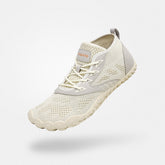

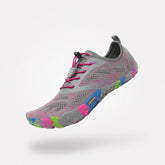

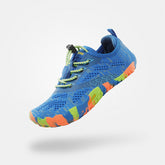



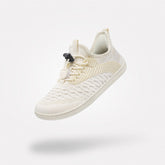

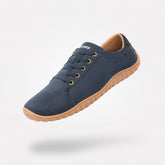

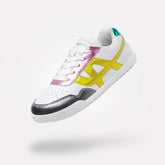

1 comment